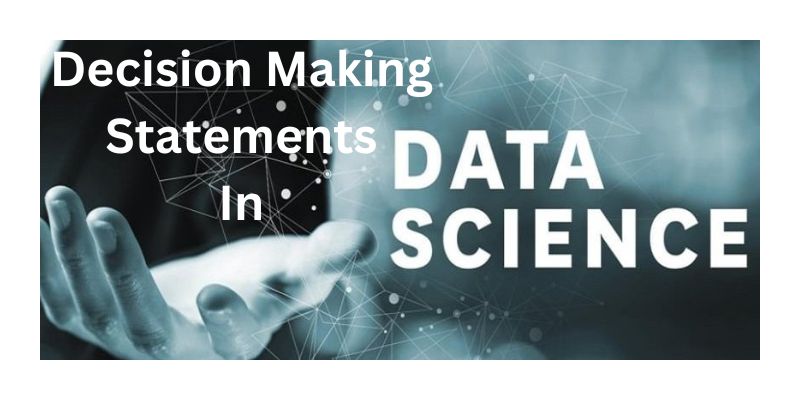In data science, making decisions based on data is fundamental. The decision-making process involves using conditional logic, where we take different actions depending on certain conditions. In this blog post, we’ll delve into decision-making statements in data science, exploring their importance, types, and practical applications. Data Science Courses in Bangalore provide the comprehensive training you need to excel in this field.
Importance of Decision-Making Statements in Data Science:
Data science involves analyzing vast amounts of data to extract valuable insights and make informed decisions. Decision-making statements bridge data analysis and action. Allowing data scientists to automate processes, classify data, filter information, and more based on specific conditions.
Types of Decision-Making Statements:
- If-Else Statements: One of the most fundamental decision-making constructs in programming, an if-else statement evaluates a condition and executes different code blocks based on whether the condition is true or false. In data science, practitioners commonly use if-else statements to filter data, handle missing values, and implement simple business rules.
- Nested If-Else Statements: Nested if-else statements involve placing one if-else statement inside another. This allows for more complex decision-making logic where one must evaluate multiple conditions. Nested if-else statements are helpful in scenarios with hierarchical decision criteria or multiple levels of categorization.
- Switch-case statements: While not as commonly used in Python as in languages like C++ or Java, switch-case statements allow for multi-way branching based on the value of an expression. In data science, switch-case statements can be simulated using dictionaries or lookup tables to efficiently handle categorical variables . Join Data Science Training in Marathahalli and gain access to a wealth of knowledge and experience from field experts, and connect with like-minded individuals and potential mentors.
- Ternary Operator: The ternary operator provides a compact way to write conditional expressions with a syntax similar to if-else statements. People often use it for inline conditional assignments or expressions where the condition is simple, and the actions are straightforward. Although not exclusive to data science, ternary operators find applications in data preprocessing, feature engineering, and model evaluation.
Practical Applications of Decision-Making Statements in Data Science:
- Data Cleaning and Preprocessing: Decision-making statements are essential for handling missing data, outliers, and inconsistencies in datasets. They enable data scientists to apply specific transformations or imputations based on the characteristics of the data.
- Feature Engineering: In feature engineering, decision-making statements are used to create new features or modify existing ones based on domain knowledge or the data’s statistical properties.
- Model Selection and Evaluation: When comparing multiple models or tuning hyperparameters, decision-making statements help automate the process.
- Business Rule Implementation: In real-world data science applications, decision-making statements are often used to implement business rules or logic derived from stakeholders’ requirements. These rules can dictate actions such as customer segmentation, fraud detection, personalized recommendations, and risk assessment.
Decision-making statements are indispensable tools in the data scientist’s toolkit, facilitating the translation of data insights into actionable outcomes. Whether it’s filtering data, implementing complex business rules, mastering decision-making constructs empowers data scientists to derive value from data effectively. By understanding the types and applications of decision-making practitioners can make informed decisions that drive business success and innovation. Training Institute in Bangalore also offers career guidance services and job placement assistance.
Also Check: Data Science Interview Questions and Answers


